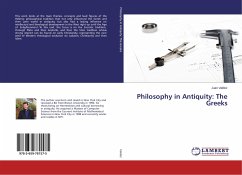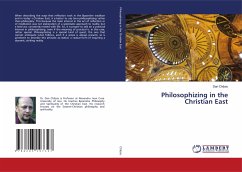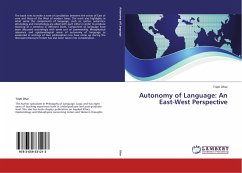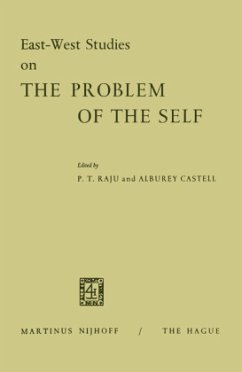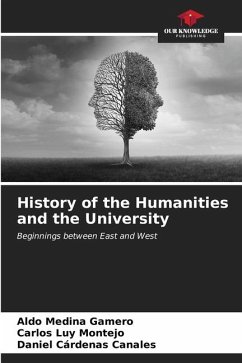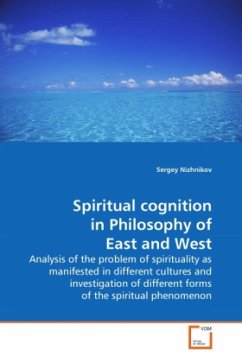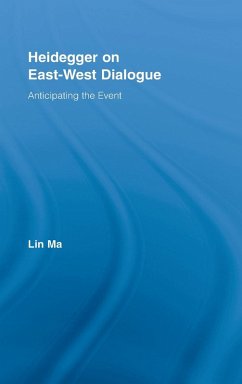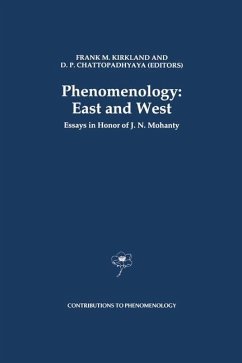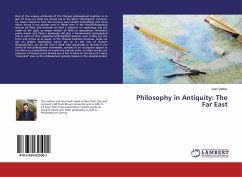
Philosophy in Antiquity: The Far East
Versandkostenfrei!
Versandfertig in 6-10 Tagen
15,99 €
inkl. MwSt.

PAYBACK Punkte
8 °P sammeln!
One of the unique attributes of the Chinese philosophical tradition is its lack of focus on what we would call in the West "theological" concerns, i.e. issues related to how the universe was created (cosmology) and what divine forces if any preside over it. While even in the theo-philosophical systems of Plato and Aristotle we find a rejection of mythology and the realm of the gods as simply matters of faith or speculation, Aristotle's prime mover and Plato's demiurge still play a fundamental metaphysical role in each of their respective philosophical systems, even if they are not front and ce...
One of the unique attributes of the Chinese philosophical tradition is its lack of focus on what we would call in the West "theological" concerns, i.e. issues related to how the universe was created (cosmology) and what divine forces if any preside over it. While even in the theo-philosophical systems of Plato and Aristotle we find a rejection of mythology and the realm of the gods as simply matters of faith or speculation, Aristotle's prime mover and Plato's demiurge still play a fundamental metaphysical role in each of their respective philosophical systems, even if they are not front and center so to speak. In the Chinese tradition however, while we see an implicit theological stance per se in the role of Heaven (Shangdi/Tian), we do not find it dealt with specifically or directly in the works of the philosophers themselves, outside of an occasional appeal to the divine as a benchmark of world and natural order. In other words, the existence of Heaven is not denied per se but it takes on the form of a more "naturalist" view as the philosophical systems mature in the classical period.



